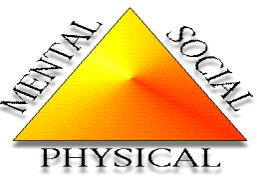

JCM Design

JCM Design
What is Digital Game-based Rehabilitation?
Digital game-based rehabilitation, also known as gaming rehabilitation, is a therapeutic technique in which digital games are used to improve physical and/or mental conditions. Digital game-based rehabilitation has been a part of physical and occupational therapy in acute, rehabilitation, and community settings for several years. Behavioral health is still in the nascent phases of game-based rehabilitation. Mobile health, sometimes referred to as mHealth, has many different definitions. The Global Observatory for eHealth (GOe) defined mobile health as medical and public health practice supported by mobile devices. These mobile devices include, but not limited to, smartphones, tablets, wearable computers, laptops, and handheld game consoles. These mHealth technologies generally fall into seven different categories. These categories are: 1. Chatterbots 2. Patient monitoring devices 3. Microcomputers 4. Mobile telemedicine/telecare devices 5. Mobile operating system technology 6. Data collection software 7. Mobile applications Mobile health has constantly evolved since its inception. The integration of another technology, educational games, has provided mobile health technologies with a new genre of a mobile application making game-based rehabilitation an emerging technology in mHealth. These mHealth apps are integrated either for rehabilitative purposes (“game-based rehabilitation”), educational purposes (“game-based learning”), assessment purposes (game-based assessment”), or for a combination of two or all three. Mobile health apps that were solely for rehabilitative purposes address issues such as sex education, fruit and vegetable intake, self-care/symptom management, increasing physical activity, health education, breastfeeding, smoking cessation, obesity management, and recovery from a somatic injury or disorder.
Cognitive Behavioral Game Design: A Unified
Model for Designing Serious Games
By: Starks, Katryna (2014, February 3). Frontiers in Psychology, 5. doi:10.3389/fpsyg.2014.00028 https://www.frontiersin.org/articles/10.3389/fpsyg.2014.00028/full
Guidelines for the Gamification of Self-
Management
of Chronic Illnesses
By: AlMarshedi A, Wills G, Ranchhod A, JMIR Serious Games 2017;5(2):e12, DOI: 10.2196/games.7472 PMID: 28500018 PMCID: 5446669 URL: http://games.jmir.org/2017/2/e12

JCM Design

JCM Design



